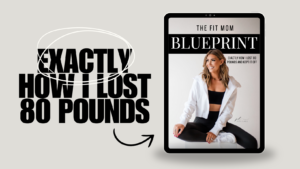Diets have a staggering 95% failure rate. Let that sink in. For decades, the weight loss industry has sold you quick fixes, rigid plans, and expensive products that promise transformation. And yet, like so many busy, ambitious women, you’ve likely spent years trying everything — counting calories, cutting carbs, fasting, endless meal prepping, detoxes.
 You’ve put in the effort, done the work, and followed all the advice. But if you’re still feeling stuck, frustrated, and caught in the exhausting cycle of losing and regaining weight, it’s time to look under the hood and uncover the truth.
You’ve put in the effort, done the work, and followed all the advice. But if you’re still feeling stuck, frustrated, and caught in the exhausting cycle of losing and regaining weight, it’s time to look under the hood and uncover the truth.
The problem isn’t you. You’re not failing diets — diets are failing you. They don’t address the deeper issues that keep you stuck. Today, we’re pulling back the curtain on the 7 biggest truths the weight loss industry doesn’t want
you to know.
1.Diets Aren’t Designed to Be Sustainable
Diets are built on restrictions — cutting calories, eliminating food groups, and following rigid rules. While they may deliver quick results, they’re not meant for the long haul. That’s because the industry profits from repeat customers. When you regain the weight (which most people do), you’re likely to buy into the next “miracle” plan.
What to Do Instead: Focus on building sustainable habits. Think less about what you can’t have and more about what you can add: nourishing foods, mindful movement, and self-compassion.
2. Diets Are Designed to Fail
Did you know that 95% of diets fail, and most people regain the weight they lose within 1 to 5 years? The weight loss industry thrives on this failure rate, keeping you locked in a cycle of starting over. They sell you the illusion of perfection: You’re either “good” (eating clean, working out) or “bad” (indulging, skipping a workout). This black-and-white thinking leads to cycles of extreme dieting followed by burnout and bingeing.
What to Do Instead: Ditch the “all-or-nothing” mentality. Progress is about consistency, not perfection. One missed workout or indulgent meal doesn’t undo all your efforts.
 3.Your Relationship with Food Matters More Than the Plan
3.Your Relationship with Food Matters More Than the Plan
Diets focus on what you eat but rarely address why you eat. Emotional triggers like stress, boredom, or sadness often lead to overeating, but the industry doesn’t teach you how to manage these.
What to Do Instead: Start journaling or reflecting on your eating habits. Ask yourself: Am I hungry, or am I eating for comfort? Developing a healthy relationship with food is key to long-term success.
4.Weight Loss Is About More Than Willpower
The industry loves to blame you for “lack of willpower” when you fall off a plan. But willpower isn’t infinite, and it’s not the solution to everything. External factors like stress, sleep, and hormones play a huge role in your ability to stay consistent.
What to Do Instead: Focus on creating an environment that supports your goals. Stock your kitchen with nourishing options, prioritize sleep, and manage stress through activities like yoga or meditation.
5.Extreme Calorie Deficits Backfire
Eating too few calories might seem like the fastest way to lose weight, but it can wreck your metabolism, cause muscle loss, and lead to intense hunger and cravings. This is why so many people regain weight after restrictive diets.
What to Do Instead: Fuel your body adequately. Instead of obsessing over counting every calorie, focus more on the how food actually makes you feel. I recommend using something much more powerful that macros and calories: the hunger scale. Learn to trust your body’s hunger gauge to tell you when to fill up and when you’re full. Retrain your brain to pay attention to hunger cues and follow some practical steps to build habits of measuring your food consumption based on your level of hunger. If you want support with this, and are ready to break through your weightloss plateau- snag The Fit Mom Blueprint. This all-inclusive 150+ page guide will give you the exact roadmap to how I lost 80 pounds without counting calories!
6.The “Perfect Time” Doesn’t Exist
Waiting for the perfect moment to start (like after a vacation or when work slows down) is a common trap. Life will always throw you curveballs, and if you keep waiting, you’ll never start.
What to Do Instead: Start small, even when life is busy. Commit to one or two habits, like drinking more water or adding vegetables to your meals, and build from there.
7.The Scale Is Just One Measure of Success
The weight loss industry often equates progress with a number on the scale, but this doesn’t reflect your overall health or well-being. Weight can fluctuate due to water retention, hormones, or muscle gain, making it an unreliable sole indicator of progress.
What to Do Instead: Celebrate non-scale victories: how your clothes fit, increased energy, better sleep, or feeling more confident in your skin.

The weight loss industry profits from keeping you stuck in a cycle of unrealistic expectations and self-blame. But you don’t need another restrictive diet or quick fix. You need a sustainable, balanced approach that prioritizes your long-term health and happiness.
It’s time to rewrite the narrative. Focus on progress over perfection, address the deeper “why” behind your habits, and celebrate the wins that go beyond the scale. The real transformation starts when you take back your power and embrace a lifestyle that works for you.
Which of these truths surprised you the most? Share your thoughts in the comments below!


